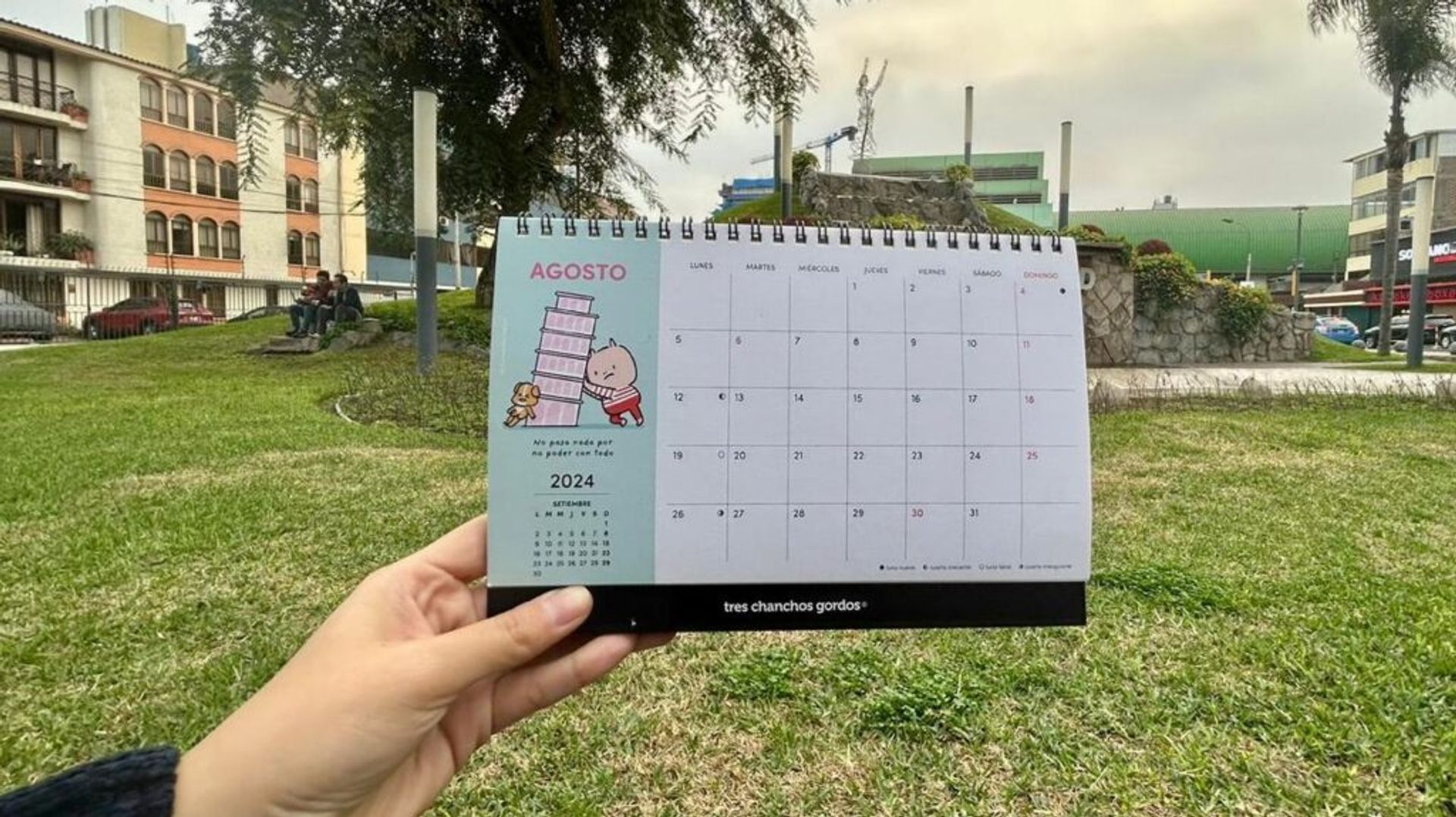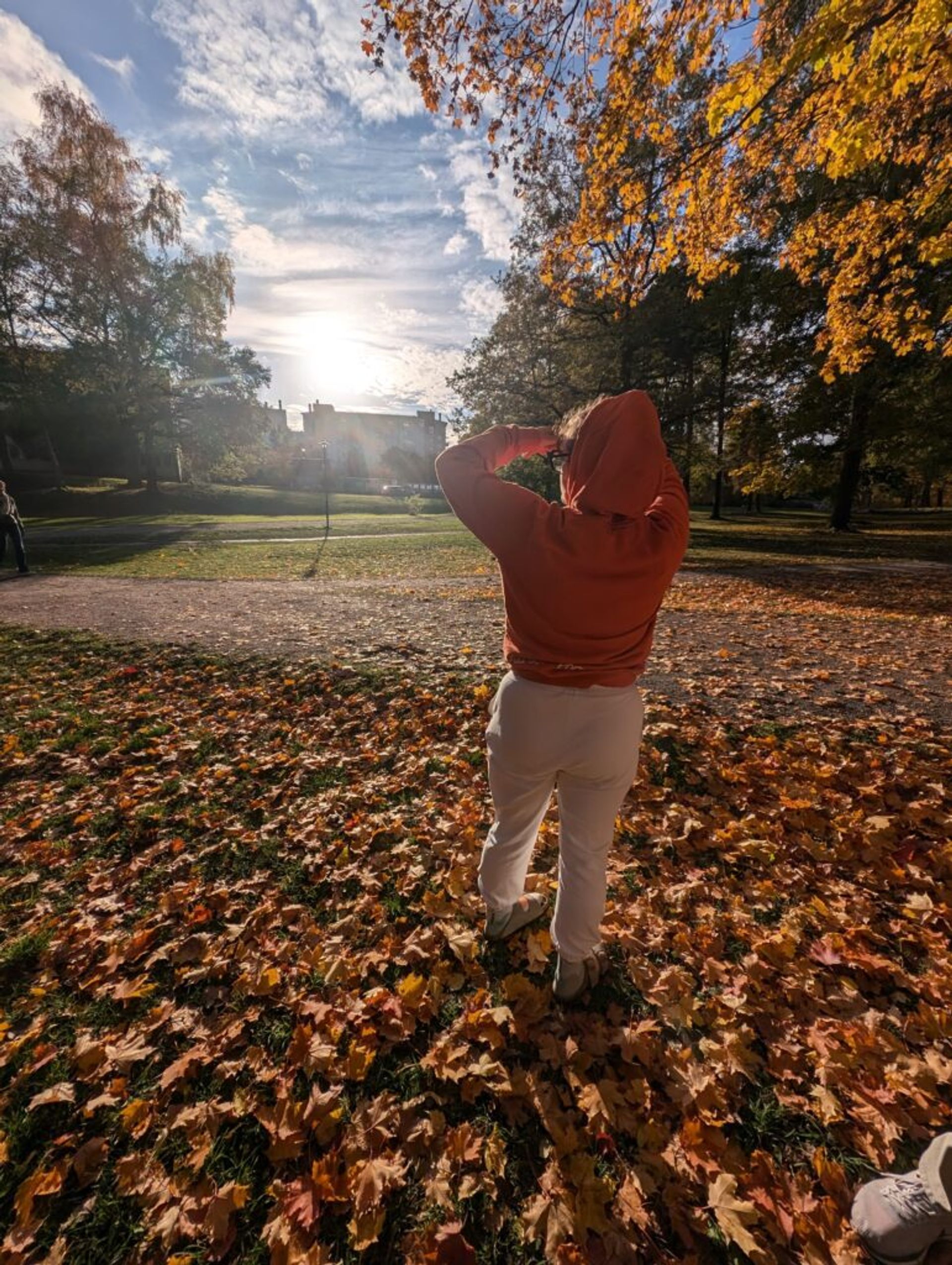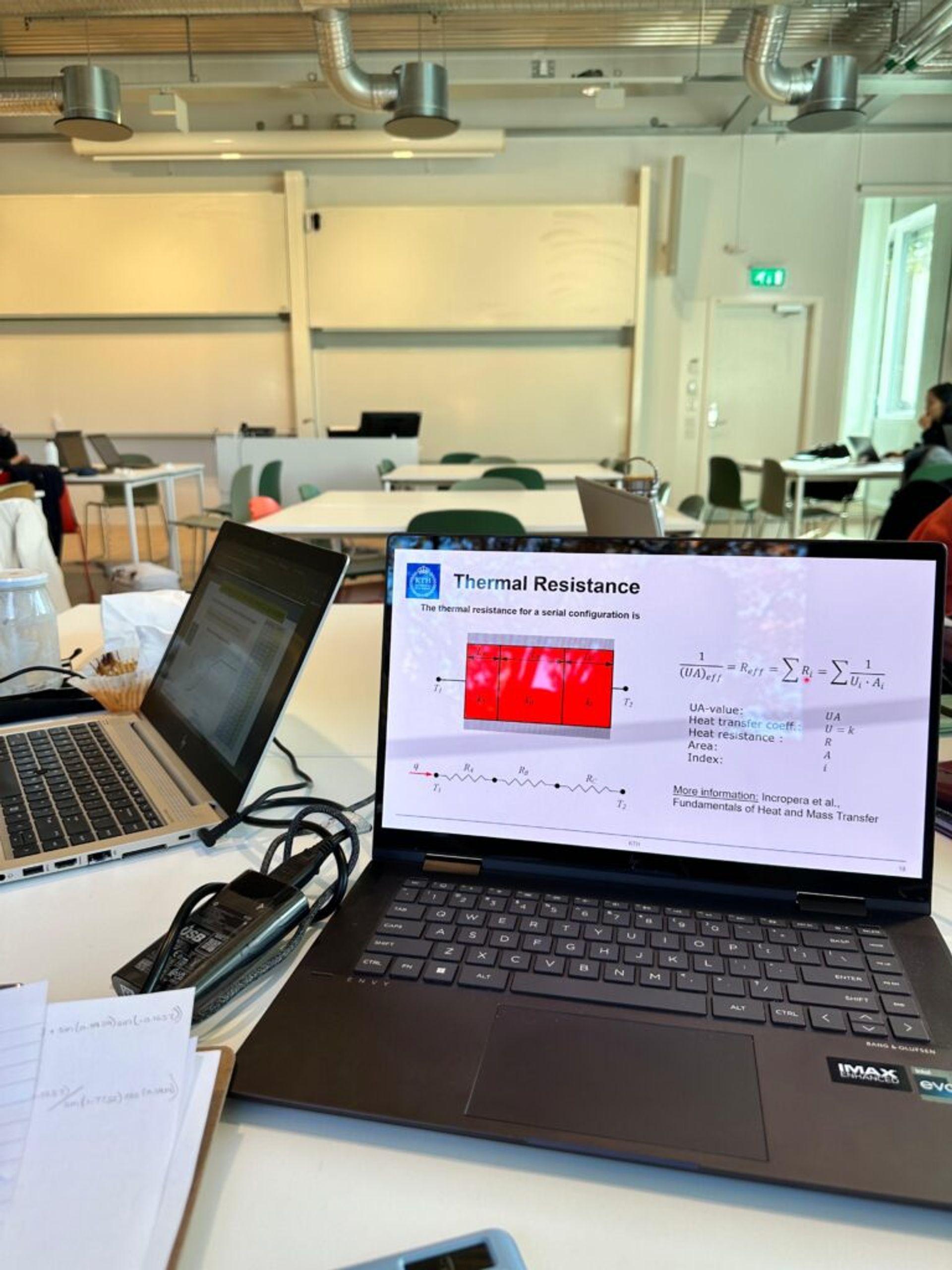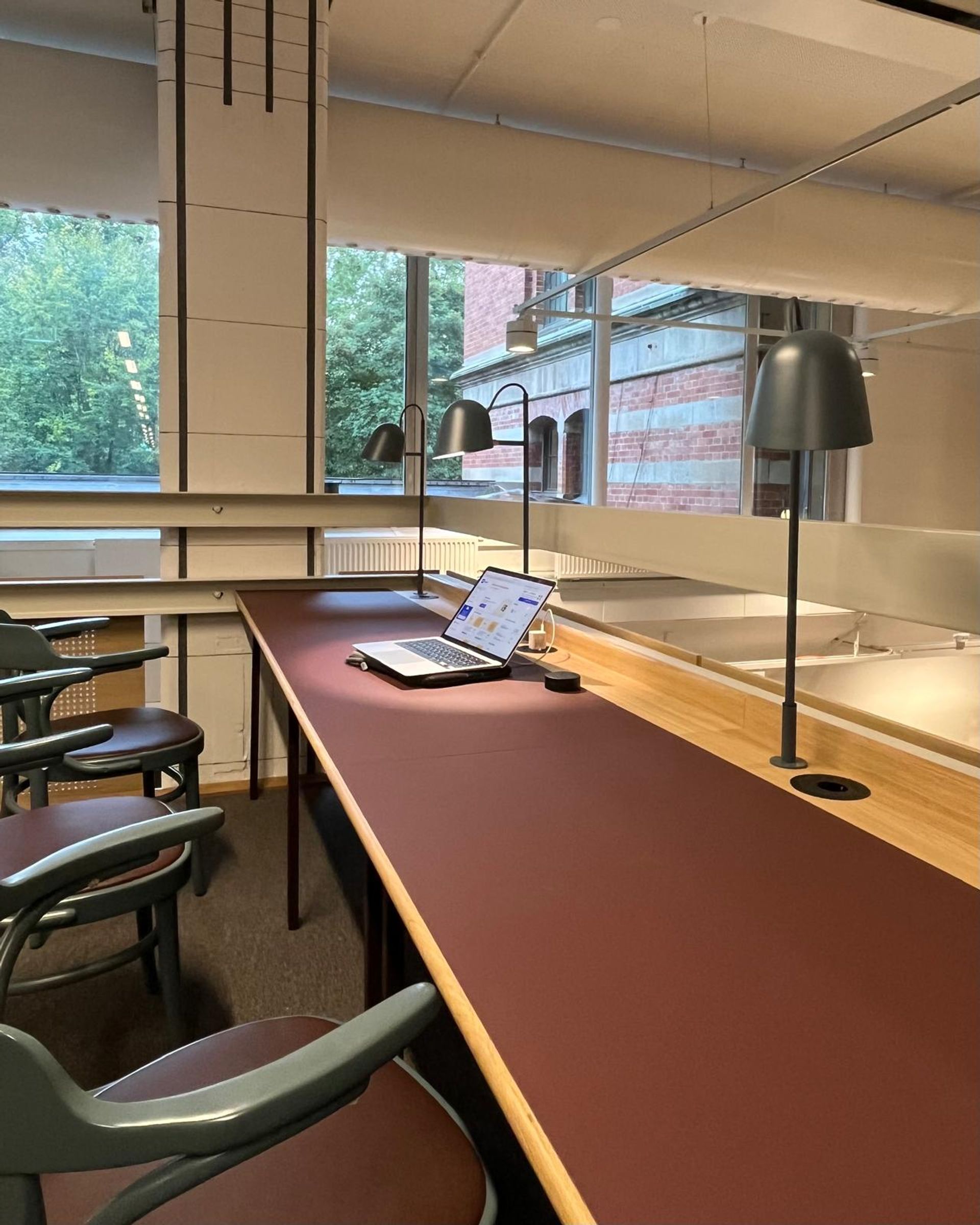
Written by Jazmin
21 Oct 2024
Thinking about taking the leap into a master’s program abroad, but feeling tied down by your 9-to-5 routine? Wondering if going back to classes after years of working might be too much of a challenge? Trust me, I’ve been there! The thought of swapping office hours for study sessions can be exciting, but it’s totally normal to feel nervous too. In this post, Joshua and I will share our journey of overcoming the fear of becoming students again and tips on how to readjust to student life after years in the workforce. SPOILER: It’s possible!
Our Job Past Life
Jazmin PE
Hey there, Jazmin here! These days, I’m a 28-year-old master’s student at Lund University—but just three months ago, my introduction sounded very different: ‘Hi, I’m Jazmin, Marketing Coordinator.’ Back then, in my home country Peru, I had a steady 9-to-5 job and a routine that revolved entirely around work. I’ll admit, I was pretty comfortable in that role, having spent the last five years working in advertising agencies and marketing positions. Leaving that behind to become a student again? Some friends could not even believe it: “You have a nice job! Why leave it?”. Yes, I was also unsure at the beginning and I was really nervous about hitting the books again after years out of university.
The last time I was a full-time student was back in 2019, wrapping up my bachelor’s in Marketing. A lot has changed since then. Just a week after my graduation, the world shut down as the pandemic hit in 2020—my ceremony was the last in-person one for quite a while. The pandemic brought major shifts to education and how we navigate virtual spaces.
Luckily, some things have stayed the same (hello, APA 7th edition!), but many new tools have emerged since I left the university classrooms. Believe it or not, I only learned how to use ‘Canva’ this year!
I knew that becoming a student again would be a huge change, one that would push me far out of my comfort zone. But I was ready to take the leap because I’d always dreamed of studying in an international environment. Leaving behind my country, my job, and everything that felt so familiar and comfortable wasn’t easy—but I knew it was an opportunity to discover new things and maybe even a new version of myself. Plus, the master’s program I chose was exactly what I was looking for, and Sweden’s reputation for inclusivity and top-notch education made it the perfect fit for me.

Joshua JM
Hey guys! This is Joshua, your DA from Jamaica. While I don’t have as much work experience as Jazmin, I do have some tips from leaving 2 years in corporate and coming back to school. I studied Electrical Engineering, completing my programme in 2022. The thing is, my studies in university were far from aligned with what I was doing when I entered the working world, something I think that a lot of us can relate to. That fact was one of the main reasons that I actually chose to go back to school.
Similar to Jazmin, my school and professional life were majorly impacted by COVID. Just one semester into university, my entire school life was upended because of all the restrictions that came with the pandemic. That meant that I never got to truly experience what university life was like, and to this day, there’s a part of me that is eager to feel what it really means to live on a university campus with my classmates. I never got to fully learn what it meant to integrate in a university setting and a lot of the things I am experiencing now are completely new to me. This leads me to my tips and suggestions below.

Challenges and Useful Tips!
Jazmin PE
Being a student isn’t just about attending classes—it’s about navigating everything that comes with it, like living on your own, building a social life, managing financial challenges, and more. It’s a whole new world compared to working life, and the differences can be overwhelming at times.
When you’re working full-time, certain things are taken for granted: a fixed schedule and a familiar environment. You know your weekly routine, and you plan your life around those predictable hours. When it comes to fitting in, it’s often easier—if you’ve been in the same job for a while, you’ve probably settled into a community of colleagues who are in a similar phase of life, making it easier to find common ground. As a student, all of that can feel much less certain.
Let me share some of the challenges that hit me the hardest when I made the switch from a 9-to-5 job to student life—and, of course, some tips to overcome them!
Not Fixed Schedule
Sure, you have a set schedule for lectures, workshops, and seminars—but it’s far from consistent. One week, I had lectures at 10 a.m. and 3 p.m. almost every day, while the next week, I only had two classes at completely different times. Adjusting to this after being used to a steady routine was tough. I found myself constantly losing track of the days and even struggled to plan my meals, as every day looked so different. Without a fixed schedule to rely on, organizing my time became a real challenge.
It didn’t help that, coming from an office job, I was used to the familiarity of a fixed environment. I knew exactly where every meeting room was, where to grab lunch, and how to navigate my workday seamlessly. But as a student, it was a whole new game. Suddenly, I was racing across campus, trying to navigate a maze of buildings and classrooms. One day, my lecture would be right around the corner, and the next, I’d find myself rushing across campus to a location I’d never been to before. Those first few weeks were a blur of getting lost and feeling disoriented. My sense of time and place? Practically non-existent!
Tips! Step by Step
- Stop living on autopilot! When you’re working, routines can make life feel like it’s on repeat, but that approach won’t fly in student life. So, the first step? Let go of that autopilot mode and embrace a more flexible mindset.
- Embrace change! If you were used to having lunch strictly at 1 p.m., be open to adjusting it to a different time that doesn’t clash with your lectures. You’ll need to adapt your habits to fit your new lifestyle, so allow yourself the flexibility to try new routines.
- Get familiar with your campus ahead of time! It’s super helpful to take an orientation trip on your own, exploring where classrooms are, finding the cafeteria, and figuring out the fastest routes between buildings. In some faculties, you can even ask for a map at the reception! And if they don’t have one, make your own—trust me, it’ll save you a lot of time later on.
- Plan your week, not your month. What I find most helpful now is creating a weekly schedule. I start by adding my lectures to a spreadsheet (or using a physical planner if you prefer), and then fill in study times, meals, and any other activities I have planned. Think of this as a guide rather than a strict rulebook. And don’t pressure yourself to complete every single item on your agenda—leave room for some flexibility!

Too old to fit in student life?
Oh, that question! Social life is such a big part of being a student. Before coming to study in Sweden, I knew I’d be meeting people from all sorts of backgrounds and ages. In Peru, most people start their master’s after a few years of work experience, so the average age tends to be around 27 to 31. I expected something similar here, so when I realized that most of my classmates were between 21 and 24, I panicked. I don’t think I’ve ever been so nervous about sharing my age before!
Fitting in at work was never a challenge—I was usually surrounded by people my age or those in a similar stage of life. Plus, if you’ve been in the same job for a while, you get comfortable with your colleagues, and your social circle stays pretty consistent. But starting classes, I was incredibly nervous about making friends and fitting in (Am I too much of a millennial?). I definitely didn’t want to feel like the odd one out among younger students.
So, If you are feeling like this. You are not alone!
Tips! and Truths
The truth is, no one really cares about your age. In my experience, people are far more curious about where you’re from than how old you are. And if age does come up, it’s usually just a casual, one-time question—nothing more. Now, I can honestly say that I’ve built great connections with classmates of all ages, and I’ve even found common ground and enjoyed parties with the younger ones. How did I manage to do this? I’ve put together a few tips that might help you too!
- Don’t be too self-conscious! Remember, age is just a number, and you’re never too old to try new things or make new friends.
- Be open and flexible. You might be used to a certain routine or set of hobbies, but studying abroad is a perfect opportunity to step out of your comfort zone. If someone invites you to a themed party or suggests trying a new activity like fencing classes, why not give it a shot? Your life has already taken a 360° turn—embrace the adventure!
- Embrace the differences. We all have something unique to bring to the table, regardless of age or nationality. I’ve learned so much from my younger classmates; they just finished their bachelor’s degrees, so they’ve been great guides in helping me adapt to the rhythm of classes and assignments.
- And remember, just like any social environment, you’re not going to click with everyone—and that’s okay. Take your time, be patient, and find your people!

Joshua JM
A world of new people. Where do I fit in?
One of the most important aspects of being a student is learning to make friends. Universities in Sweden tend to place significant emphasis on group work, all the more reason why we have to learn to make friends, or at least become friendly with our classmates.
Tips! and truths!
Not only is doing university alone virtually impossible, it’s senseless. University is meant to be a group activity. The whole point of going back to school, especially as international students, is to exchange cultures and perspectives to create global solutions. Sadly, that can’t happen if you isolate yourself from your classmates or other students in general. Your university life is meant to be a time where you build interpersonal relationships, some of which may last a lifetime. Here are a few of my tips to get started.
- Find a group of people to work on your assignments and study for exams with. Studying can sometimes be daunting. It can also be incredibly time consuming when you choose to do it alone. Little questions that you may not quite understand, another classmate may easily be able to explain to you and you to them. Try your best to form a study group with the people you fit with best. Those moments studying with your classmates will also become some of the most valued memories of your university experience.
- Wherever possible, try to go out with your classmates and get to know them on a more personal level. If they plan a trip or some type of outing, even if you’re not always up for it, try your best to go. You have no idea how many priceless pieces of information are shared during these events.
- Never be afraid to speak about the things that are weighing on you with your classmates. Being vulnerable with your classmates may actually help you to relieve stress. Believe it or not, students, especially international students, tend to struggle with similar things. Expressing them, one with another is a very good way to manage anxiety and find solutions to shared problems. Just ensure that you are vulnerable with the people who feel right to you!

Getting used to learning again
Remembering how to learn and apply concepts can be a huge hurdle coming back into a school environment. Going back to doing things like taking exams and quizzes, writing assignments and doing group work all felt a little foreign. I found myself sitting and thinking about the last time I had to operate under these conditions, a train of thought which reminded me how old I’m getting.
Tips! and truths
There is a HUGE amount of information that will be thrown at you throughout your courses. Here are a few things to keep in mind while you’re learning to readjust to the college lifestyle.
- You don’t have to know every single thing that the lecturer presents to you. At times, it may feel very overwhelming to manage everything you need to know. The thing is, you’re not expected to remember every word that comes out of your lecturer’s mouth or every slide in the powerpoint. Focus on the expected outcomes of the course and always keep them in mind when you’re getting your work done.
- Always remember that previous exams and assignments are your best bet to test your knowledge and ensure that you’re on the right track. Past papers and assignments help you to narrow down what you need to come away with from your course understanding.
- This one may be a bit controversial. Personally, I learn by doing. I find that it takes A LOT of time to go through lecture slides or watch recorded lectures. For some courses that may be beneficial but for a number of mine, I find that my time is better spent by starting with the questions I need to answer. When I focus on assignments and past papers, I get to learn backwards, focusing my attention on understanding the things I need to be able to grasp the most critical concepts.






